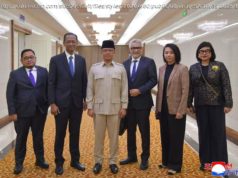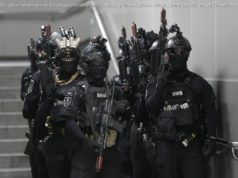Array
South Korea’s extreme political polarization and acrimony put its democracy to the test when President Yoon Suk Yeol declared martial law late Tuesday, in an apparent preemptive move to prevent opposition parties from stymieing his presidency with budget cuts and the impeachment of key officials.
In such a crisis, democratic institutions demonstrated their resilience, a strength that has safeguarded the country’s young, but vibrant democracy, experts and observers said Wednesday.
Political commentator Park Chang-hwa said that, in the end, the swift resolution of the martial law standoff within just six hours was the result of both the parliamentary system’s checks and balances and the people’s right to resist.
“During the process of blocking the martial law declaration, the media closely scrutinized events, the National Assembly convened swiftly, and when lawmakers climbed fences and engaged in physical struggles, citizens stepped in to support them,” he told The Korea Herald. “Because all of this happened quickly, the situation could be contained at an early stage.”
At 10:28 p.m. on Tuesday, Yoon declared martial law in an urgent public address. The military immediately transitioned to a martial law command structure and issued orders which, among other things, prohibited “all political activities, including the activities of the National Assembly, local councils, political parties and political associations, as well as assemblies and demonstrations,” and placed all media and publications under the control of the martial law command.






